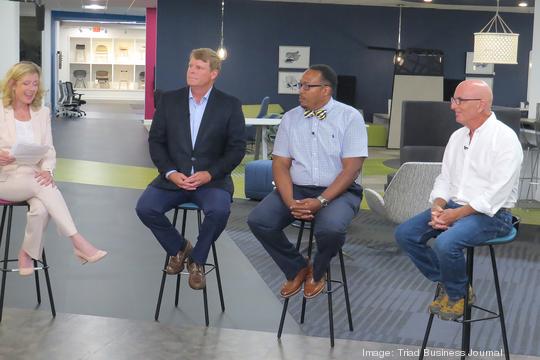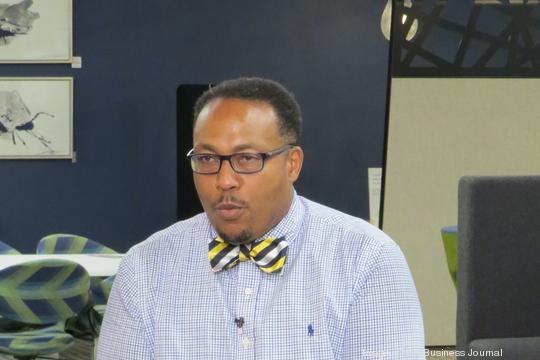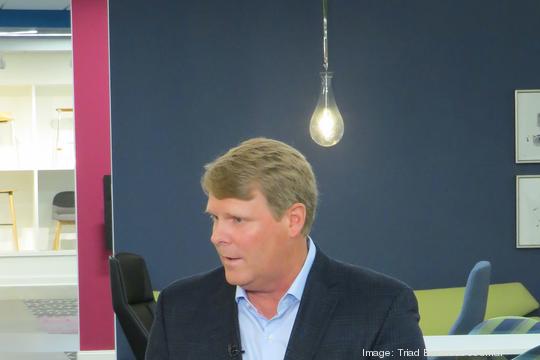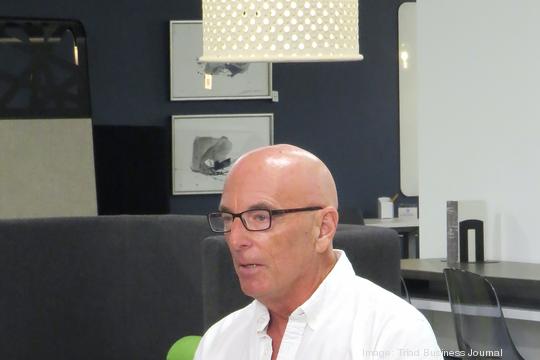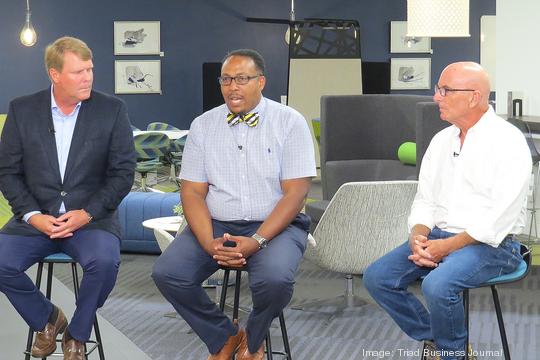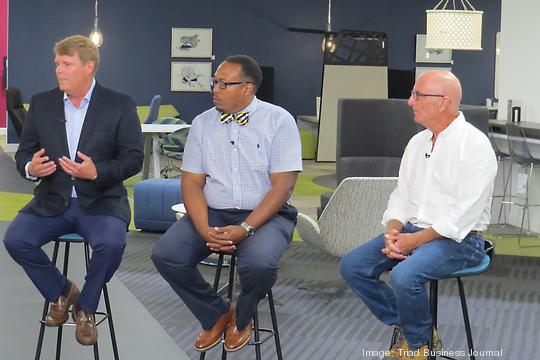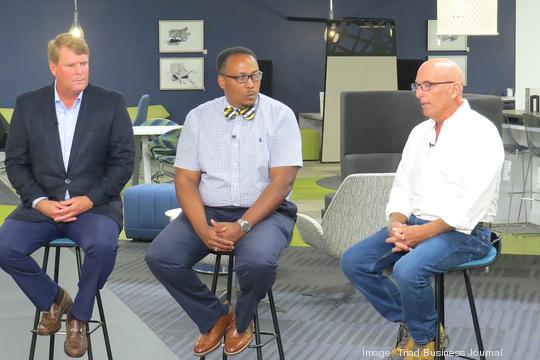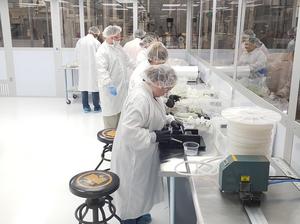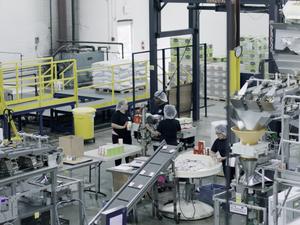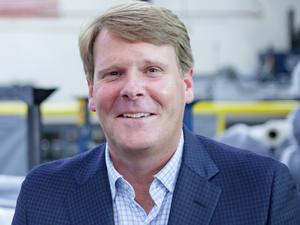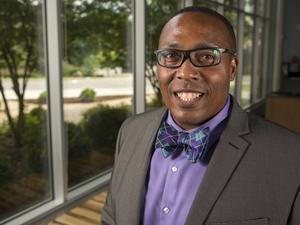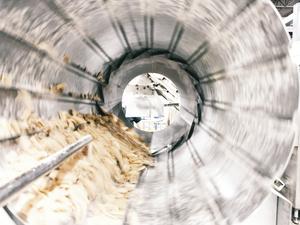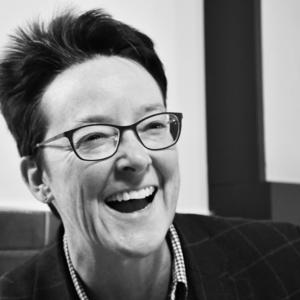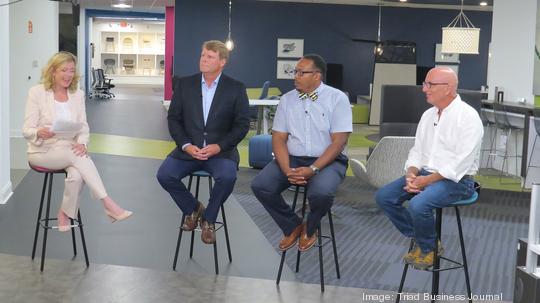
Through the past 18 months following the global response to Covid-19, companies — and entire industries — have found themselves adapting to constantly changing conditions impacting work environments, manufacturing operations and supply chain disruptions.
With the latter disruptions affecting everything from raw materials to packaging, manufacturers scrambled to identify suppliers to fill orders from their own customers.
Triad Business Journal recently organized Manufacturing in 2021: The Pandemic Shift, a virtual panel featuring three diverse Triad manufacturers, at Furnitureland South in Jamestown.
Moderator Sandy Dunbeck, the director of the High Point Economic Development Corp., led the discussion with three manufacturing CEOs — Iv Culp of High Point-based mattress fabric and upholstery maker Culp Inc.; Geoff Foster of plastic injection molding manufacturer Core Technology Molding Corp. of Greensboro; and Phil Kosak of Greensboro-based Carolina Fine Snacks and maker of its proprietary Wicked Crisps brand.
Dunbeck began the discussion by asking the panelists about adjustments they made throughout the pandemic to keep the production lines running. Their responses have been edited for brevity and clarity.
Iv Culp: When I think about adjustments through Covid, I put it in two time periods. During Covid what we did as a fabric company was pivot to PPE products. We switched to making face masks and hospital bed covers in four different countries. And that was a big deal for us for a number of reasons. No. 1, it was the right thing to do. No. 2, it helped keep as many people as we could employed. And No. 3, it made us an essential business, which helped us in recovery of the business because when things came back we were still running and not coming back from a standstill.
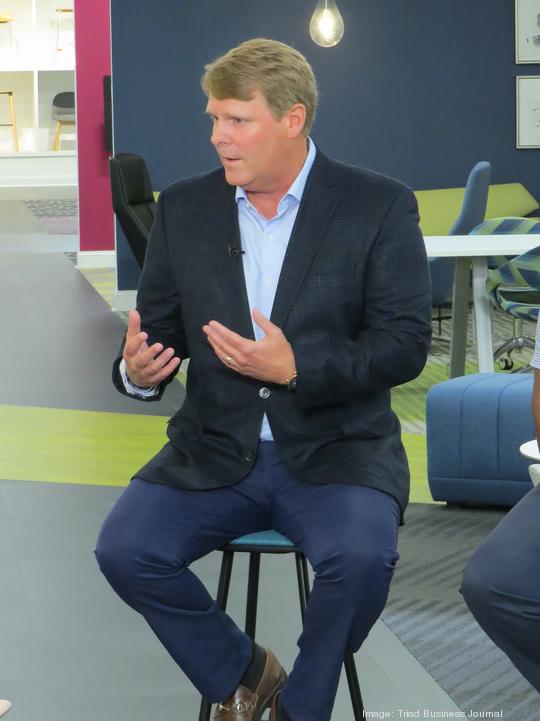
That was great. But then after Covid, to me, the pivot is just refocusing even more on our adjustable, flexible multicountry manufacturing. We love being in North America, and the U.S. is critical, but we have to have options around the world just to be able to react to demand and disruption that we know is going to come, so flexible manufacturing is really critical and having an adjustable supply chain.
Geoff Foster: Very similar to others we had to pivot about a year ago where BMW and some of our other major customers like Whirlpool shut down their facilities globally for a month, so we initially made face shield components, and we made close to a half a million of those, but it really got a lot of attention for our clean room. We had a Class 10,000 clean room where we are doing injection molding and assembly. But we added a second clean room, a Class 1,000, which is more stringent, where we are manufacturing not just for Merck but our newest piece of business, Pfizer.
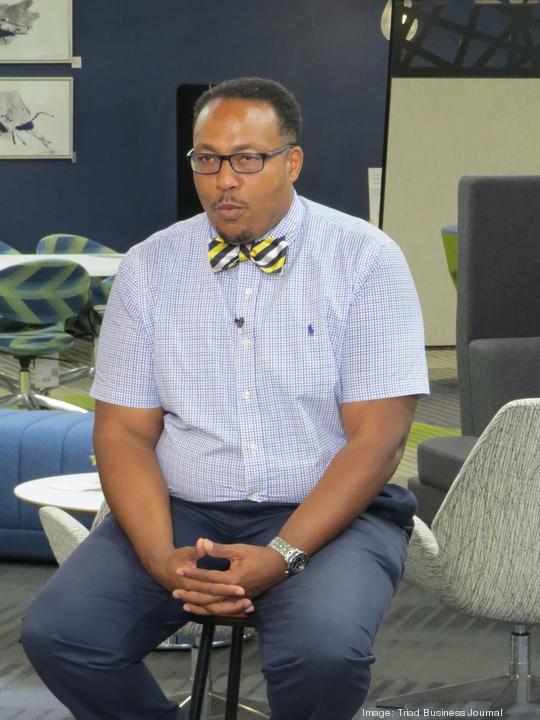
We transitioned from just face shields to manufacturing biological pharmaceutical products 24 hours a day, seven days a week. Our business is really turning where two years ago a large percentage was BMW and automobiles to now we have pivoted to 60% biological pharmaceutical. I think the biggest takeaway was localization. We ship to 150 countries and we were getting components from other countries. Now we've either identified suppliers in North Carolina, the Triad and the U.S. versus overseas where we are now actually able to manufacture some components in-house now.
Phil Kosak: We're in the food business, and the opposite was happening. The throttles were really ratcheting up, people were staying home, they were buying groceries, demand for food was off the charts. Growth just in the grocery industry was 20%, and the big companies couldn't keep up. They didn't have that type of extra capacity, so smaller companies like ours were just being pounded.
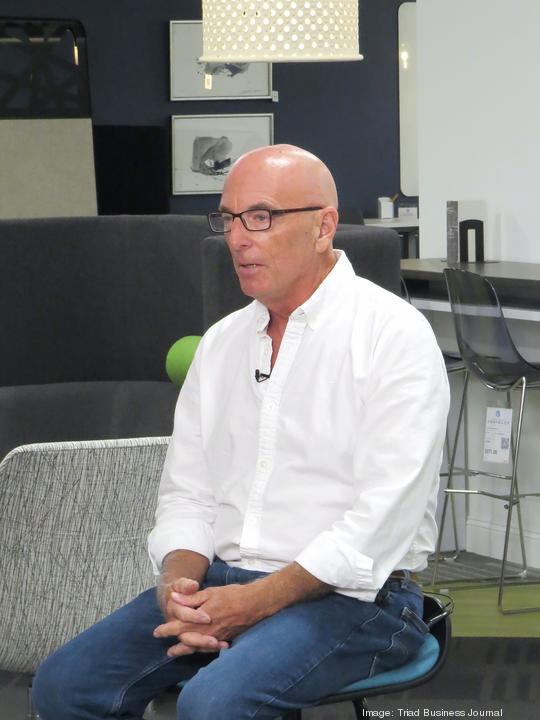
We immediately had to deal with all the variables associated with what was going on with Covid at the same time. That first meant what a lot of companies want to do anyway, is to make sure that there is buy-in. It was probably the most critical adjustment we had to make early because without the cooperation of everybody on staff, you were sunk. It wouldn't take long to close a company down from Covid flying through a plant and you would hear it in larger facilities a lot. So early adjustment was we found out who is in, and you had to make sure that you had that engagement with your staff. Top to bottom, you had to have 100% buy-in because they had to cooperate with maintaining the flow of work and goods.
On lessons learned
Kosak: The biggest lesson for us was the buy-in. Every company wants their employees to want to be there, and you found out very quickly who did and didn’t, and knowing the importance, we had to engage them to make sure they really wanted to be there, that they wanted to be a part of the company. And that's a lesson that you bring forward. You find the mistakes you've made that isolated people, and you bring them into the fold, and make sure that everybody is content.
Foster: My lesson is two-fold. One of it is dual sourcing. Don’t just have one supplier for boxes or other components because they go under, or they can't get product or they have an outbreak in their facility where they had to shut down. But our customer at the end of the day, we still need to produce product. So we had to find dual sourcing. Some of it really worked out well where it's in the Triad versus when we were getting it 200 or 300 miles away.
Pandemic Shift: The Business of Manufacturing
The other component is we had to come up with a smart factory. That was our largest investment in 2019, where we have remote access to machines, to visibility, to inventory, and we can manage our ERP remotely. We also gave that access to our customers, which is a little bit risky because you're letting them in your sandbox to see your efficiencies, but providing that transparency really grew the relationships where we've been awarded more business because of that.
Culp: Our board of directors actually pushed us as we were coming on through Covid to document these lessons learned. As I reflected on them, they’re actually lessons re-learned in many ways. In the 50 years of being in the textile business we’ve absorbed a lot of crises, and we know how to navigate struggles. So the ones we re-learned were the most important.
Dual sourcing and multimanufacturing was critical, but people and company culture matter the most. If you have talented, resilient people who love what they do, you can overcome anything. And I think all of our businesses have proven that. We’re a public company that we try to operate like a family business, and that's just the lesson you can’t learn enough.
